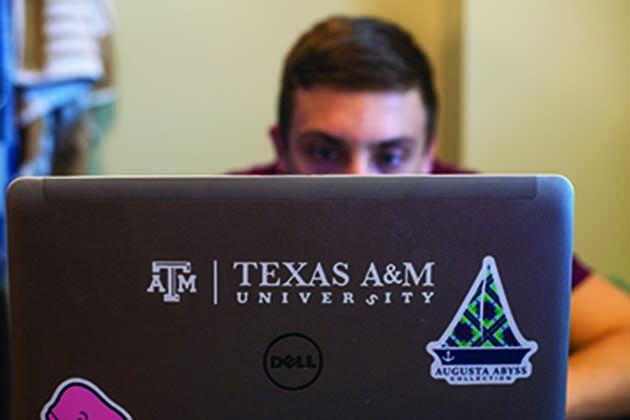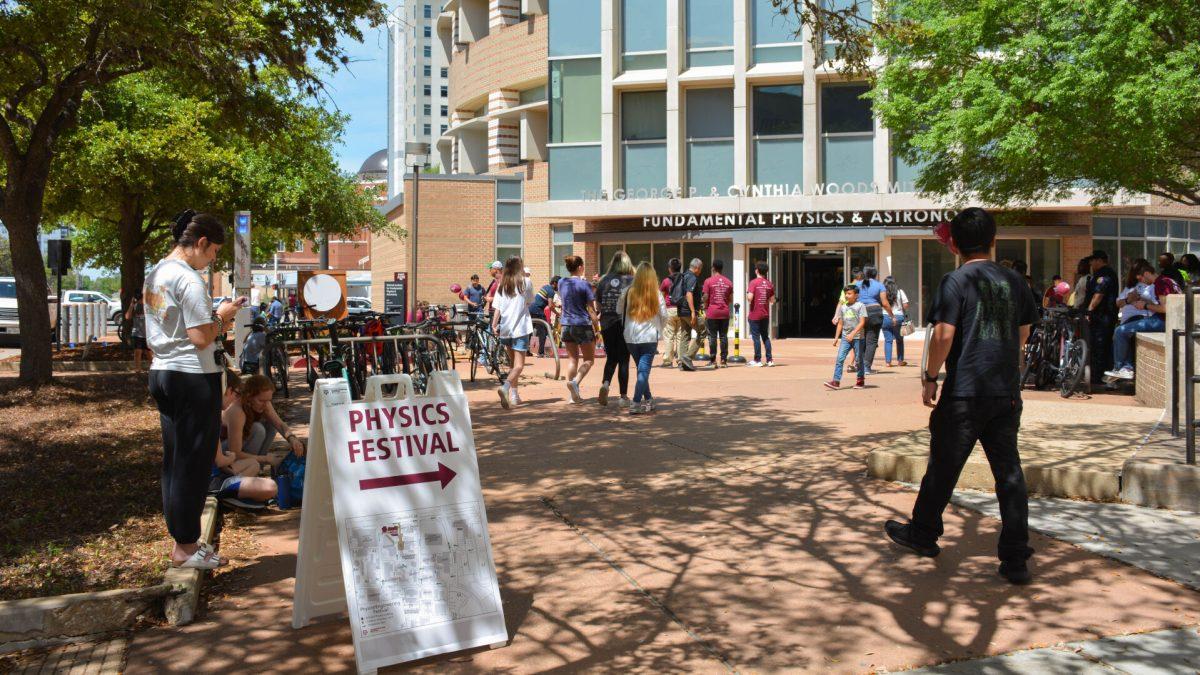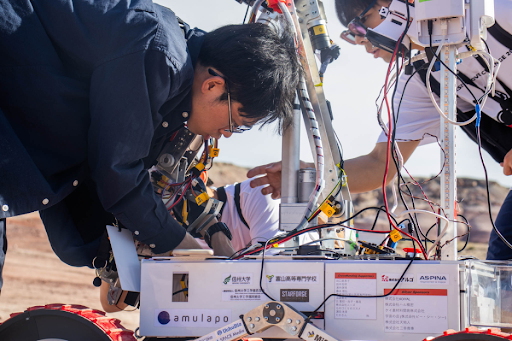Every incoming engineering student will need to purchase a university-approved laptop by Spring 2015 — a policy referred to as “Bring Your Own Device”, or BYOD.
The policy move is in line with the Dwight Look College of Engineering’s goal to increase enrollment to 25,000 students by 2025. College administrators say the requirement will be covered by financial aid and will better prepare students for what has become a computer-dominated field, but some students call it an unnecessary cost and question the policy’s implementation.
Teri Reed, assistant vice chancellor for academic affairs, said the policy aims to aid students technologically in their advancement in the professional world.
“From a learning perspective, all of our students use computing devices as part of everything they do,” Reed said. “They’ve grown up with computers and being connected. Companies are going to expect that, so it’s our job to provide them the means to meet that expectation.”
Students can choose between two computer options — a Dell Latitude E6440 priced at $1,406 or an Apple MacBook Pro priced at $1,699. A four-year warranty and software such as MATLAB, LabView and a C++ compiler are included in the cost.
Engineering students who enrolled in Fall 2014 were encouraged but not required to purchase the university-approved laptops. Reed said a decision as to penalties an incoming student may face for not purchasing a laptop in Spring 2015 has yet to be made.
Reed said the implementation of BYOD allows for the cost of the laptop to be included in the calculated cost of an engineering education when students apply for financial aid.
“Any type of grant from FAFSA or any other financial state aid program is based on the cost of education,” Reed said. “When students just brought their own laptops with them, it could not go into a cost of education allotment for them. Now that it is a part of a policy, it can be included in that cost. Administratively, I think it is the right thing to do for students with higher financial need.”
Reed said while the policy is new to Texas A&M, it has been utilized at other universities.
“People have been doing this for years,” Reed said. “Virginia Tech has been laptop-required for quite a while and the University of Oklahoma was laptop-required in the college of engineering in 1999. People are mainly doing it because of the expectations of the professional atmosphere.”
Cole Dugan, engineering freshman, said he enjoys his Dell Latitude but wishes he had been notified earlier of the requirement.
“I believe it was June when I got the email from the engineering department to buy the laptop,” Dugan said. “Luckily I hadn’t bought my own laptop yet, but I’m sure there are people who had already purchased their own or got it for a graduation gift who wished they would’ve known about the policy sooner.”
Zach Enloe, engineering freshman, said BYOD could place unnecessary burden on students who might not qualify for financial aid.
“I honestly think it’s an unnecessary cost for most students who are already paying full tuition,” Enloe said. “Some students can’t get financial aid because of their income so, that adds another almost $2,000 on their tuition.”
Amber Muenzenberger, director of remote learning and outreach education, said the students are allowed to bring their own laptops for the 2014 school year and the requirements for fall 2015 are still in the works.
“We’re still deciding on what the students can bring in fall 2015,” Muenzenberger said. “But this year we made it clear that if the students had already purchased their own laptop, they wouldn’t be required to purchase the Dell or the MacBook.”
Once the student makes the laptop selection on the Texas A&M engineering website, Muenzenberger said he or she is redirected to the Dell or the Apple website to complete the purchase.
“The students don’t actually purchase the laptop from the university,” Muenzenberger said. “We were able to negotiate a price with both companies so that students could purchase the computers at the best deal from their websites.”
Muenzenberger said the university was able to negotiate a four-year warranty plan with the two companies.
“Anything that happens to the computer is within warranty,” Muenzenberger said. “That’s really what separates the prices from the normal prices of the laptops.”
Required laptops on the way for engineers
September 23, 2014
0
Donate to The Battalion
$1765
$5000
Contributed
Our Goal
Your donation will support the student journalists of Texas A&M University - College Station. Your contribution will allow us to purchase equipment and cover our annual website hosting costs, in addition to paying freelance staffers for their work, travel costs for coverage and more!
More to Discover










